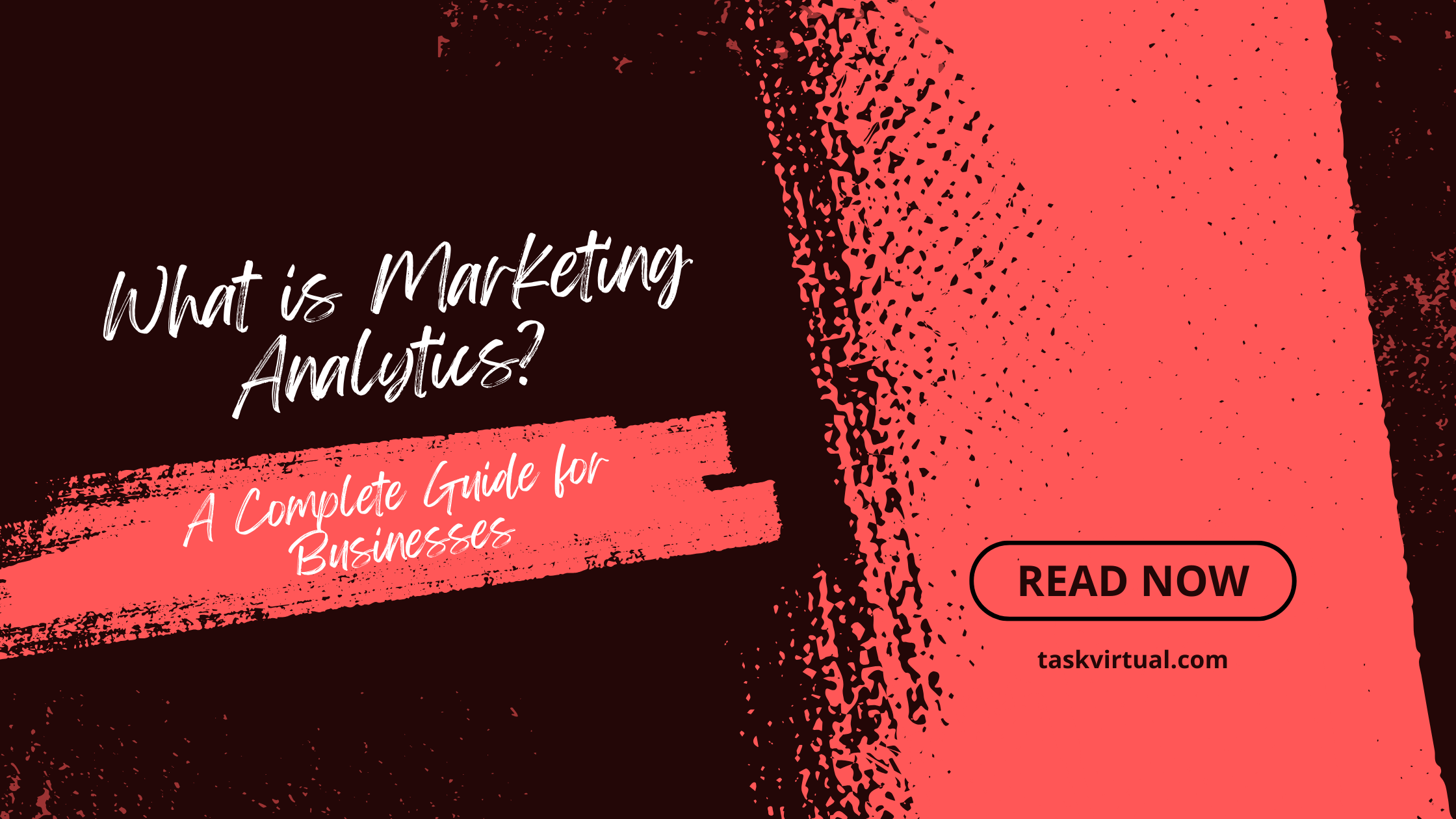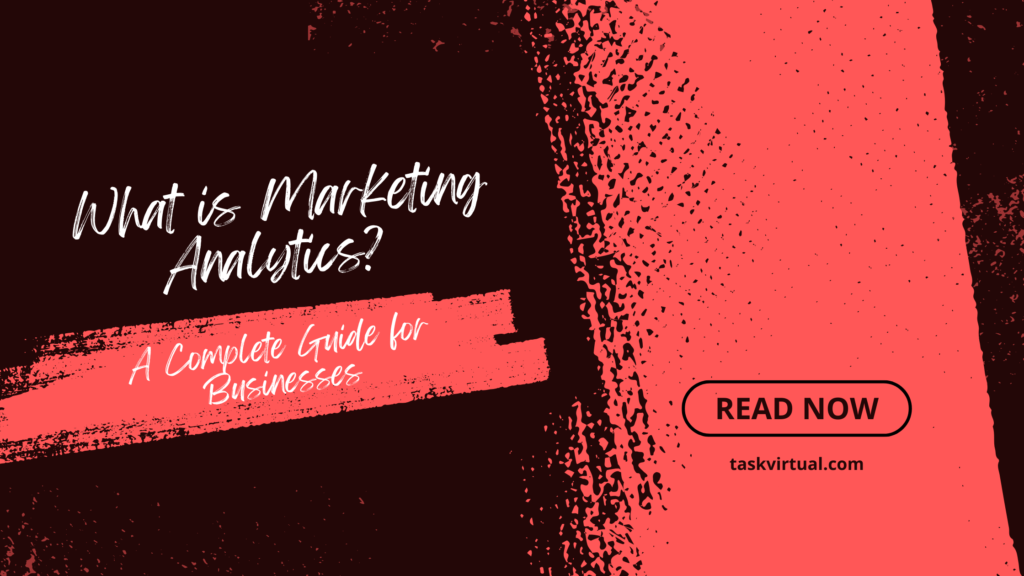
What is Marketing Analytics? A Complete Guide for Businesses
Marketing analytics is transforming the way businesses approach decision-making by leveraging data to optimize campaigns and improve customer engagement. According to Statista, the global marketing analytics market is projected to exceed 10 billion dollars by 2026. This guide explores what marketing analytics is, why it matters, and how businesses can use it to drive growth.
What is Marketing Analytics?
Marketing analytics is the process of measuring, managing, and analyzing marketing data to understand performance and optimize future strategies. It involves collecting data from various channels, including social media, websites, email marketing, and advertising campaigns, to make data-driven decisions.
Why is Marketing Analytics Important?
Marketing analytics provides insights that help businesses improve efficiency, increase return on investment, and enhance customer experiences. Here are key reasons why it is essential.
- Identifies the most effective marketing channels and campaigns.
- Helps businesses understand customer behavior and preferences.
- Improves budget allocation for higher efficiency.
- Measures key performance indicators such as conversion rates and engagement levels.
- Enables real-time tracking and adjustments for better results.
Types of Marketing Analytics
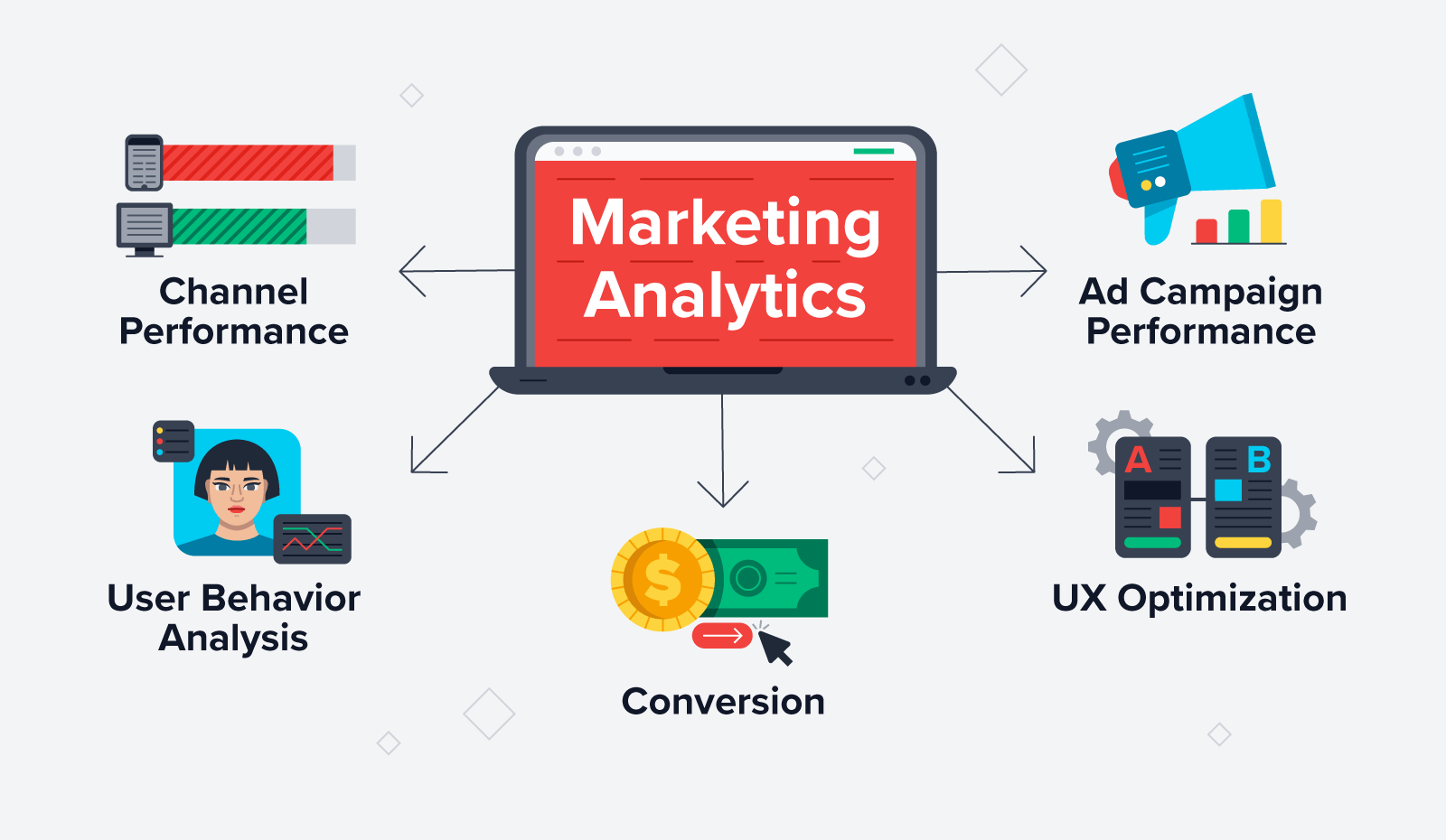
Marketing analytics can be categorized into different types based on the insights they provide.
1. Descriptive Analytics
This type focuses on analyzing historical data to understand past performance. Businesses use tools like Google Analytics and HubSpot to generate reports on website traffic, social media engagement, and ad performance.
2. Predictive Analytics
Predictive analytics uses machine learning and AI to forecast future trends based on past data. It helps businesses anticipate customer behavior and optimize marketing strategies accordingly.
3. Prescriptive Analytics
Prescriptive analytics provides recommendations on what actions to take to achieve desired results. AI-driven marketing tools like Salesforce Einstein and Adobe Sensei offer actionable insights based on predictive modeling.
4. Real-Time Analytics
Real-time analytics enables businesses to track customer interactions as they happen. This is useful for monitoring live campaigns, adjusting bidding strategies, and optimizing ad spend instantly.
Key Metrics in Marketing Analytics
Marketing analytics relies on key performance indicators to measure success. Some of the most important metrics include:
- Customer Acquisition Cost (CAC) – The total cost of acquiring a new customer.
- Customer Lifetime Value (CLV) – The total revenue generated by a customer over their lifetime.
- Return on Investment (ROI) – The profitability of a marketing campaign.
- Conversion Rate – The percentage of users who complete a desired action, such as purchasing a product or signing up for a newsletter.
- Engagement Rate – The level of interaction with content, including likes, shares, and comments.
Top Marketing Analytics Tools
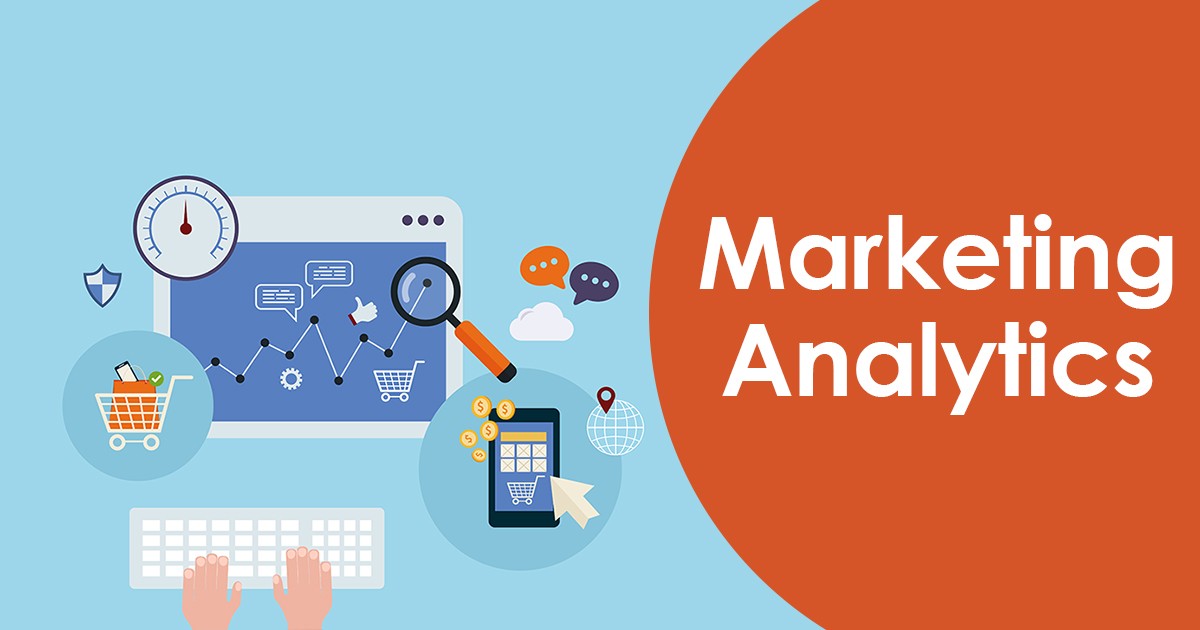
Several powerful marketing analytics tools help businesses collect, analyze, and interpret data effectively.
1. Google Analytics
Google Analytics tracks website traffic, user behavior, and conversion rates, making it an essential tool for digital marketing.
2. HubSpot Analytics
HubSpot provides insights into marketing performance, lead generation, and customer engagement.
3. Semrush
Semrush specializes in SEO analytics, keyword research, and competitor analysis.
4. Tableau
Tableau is a data visualization tool that helps businesses interpret large sets of marketing data.
5. Adobe Analytics
Adobe Analytics offers advanced customer journey tracking and AI-powered insights.
6. Sprout Social
Sprout Social analyzes social media engagement and performance across multiple platforms.
7. Salesforce Marketing Cloud
Salesforce provides predictive analytics and automation for personalized marketing campaigns.
How to Implement Marketing Analytics for Business Growth
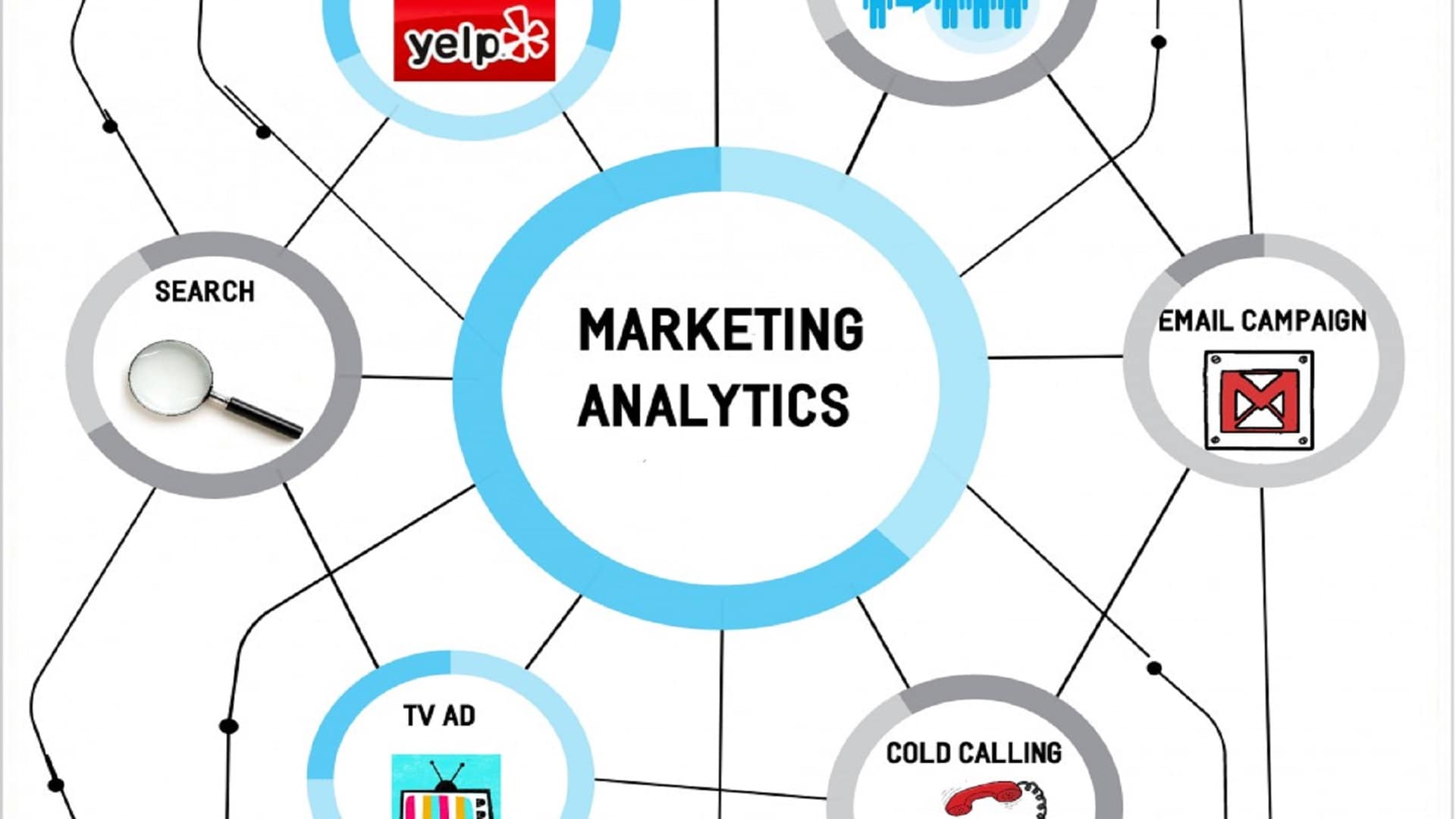
To make the most of marketing analytics, businesses should follow a structured approach.
1. Define Business Goals
Identify key objectives such as increasing sales, improving brand awareness, or enhancing customer retention.
2. Collect and Organize Data
Gather data from multiple sources, including website analytics, email campaigns, social media insights, and paid ads.
3. Analyze Performance Metrics
Use analytics tools to measure performance and identify strengths and weaknesses in campaigns.
4. Optimize Marketing Strategies
Adjust marketing efforts based on data insights to maximize effectiveness and ROI.
5. Monitor and Improve
Continuously track performance metrics and refine strategies to achieve better results.
Future Trends in Marketing Analytics
Marketing analytics is evolving with emerging technologies that improve data accuracy and predictive capabilities.
- AI-Powered Insights – Machine learning algorithms provide deeper analysis and automation.
- Privacy-Focused Analytics – With stricter data regulations, businesses will rely on ethical data collection methods.
- Real-Time Data Processing – Faster analytics tools will enable instant decision-making.
- Voice Search Analytics – Businesses will analyze voice search trends to optimize SEO strategies.
Why Choose TaskVirtual for Marketing Analytics Services?
TaskVirtual provides expert marketing analytics solutions to help businesses make data-driven decisions and improve marketing ROI.
- Custom marketing data analysis and reporting.
- Integration with industry-leading analytics tools.
- Affordable pricing starting at $3.12 / hour to $14.99 / hour, ensuring value for money.
- 364 positive reviews on esteemed VA reviewing platforms, which amounted to a 4.7-star rating
- Advanced AI-powered marketing strategy recommendations.
Conclusion
Marketing analytics plays a critical role in helping businesses optimize campaigns, understand customer behavior, and improve overall marketing effectiveness. With tools like Google Analytics, HubSpot, and Adobe Analytics, companies can collect and interpret valuable data to make informed decisions. As AI and real-time analytics continue to shape the industry, businesses that embrace marketing tools will gain a significant competitive advantage in 2025 and beyond.
